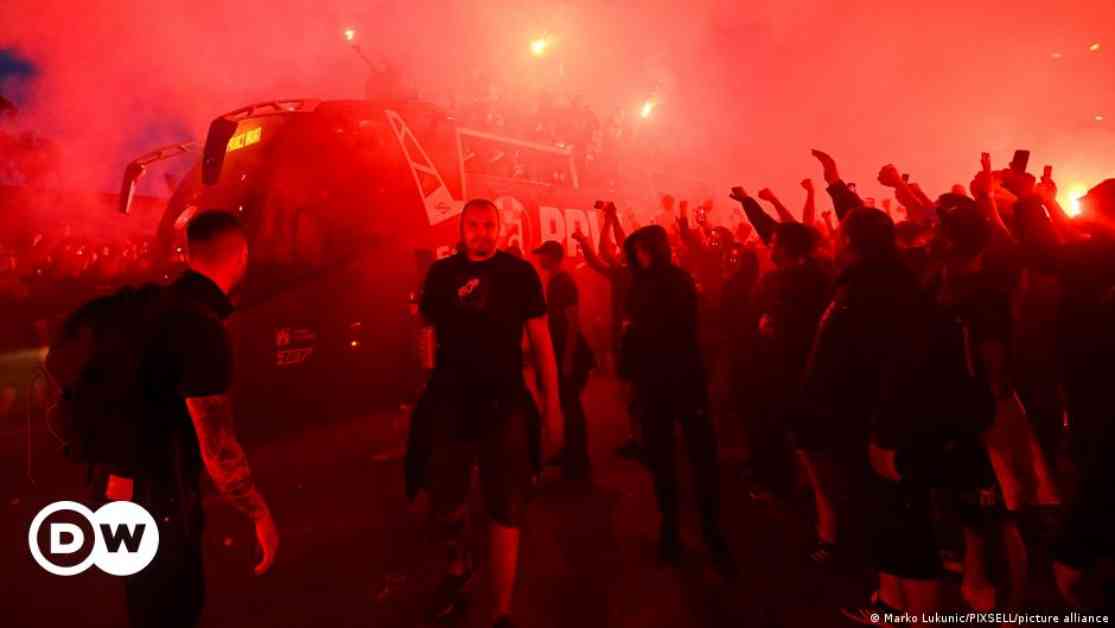Michalis Katsouris was a young man of 29 when he was brutally stabbed in an Athens suburb on August 7, 2023. The tragic incident took place during clashes between Greek and Croatian hooligans before a Champions League qualifier match between AEK and Dinamo Zagreb.
Videos of the violent street battles between the two groups quickly spread online, shocking even Dino Vukusic, an expert on fan behavior at the Ivo Pilar Institute for Social Sciences in Zagreb. Vukusic described the event as unprecedented, marking the first time a Croatian fan group was involved in such a tragic and fatal incident.
The “Bad Blue Boys” (BBB) ultras, made up of around 200 members and supporters of the perennial Croatian champions, were at the center of the violence. These fans should not have been allowed to enter Greece, especially since guest fans were prohibited from attending the match. Following the incident, approximately 100 Croatians were arrested, but Greek authorities found no evidence to charge any of the Croatian ultras, including the five main suspects.
The death of Michalis Katsouris sent shockwaves across the European football community, prompting UEFA President Aleksandar Ceferin to address the issue of hooliganism. He emphasized that this problem extends beyond Greece and is a European-wide concern that needs to be addressed.
The media coverage in Croatia highlighted biased reporting about the incident, with many outlets focusing solely on the fans rather than the broader issue of fan violence in European football. Violence is unfortunately a common occurrence among ultras, with set rules and rituals that transcend regional boundaries.
Croatian ultras, in particular, have garnered a reputation for alleged right-wing extremism due to past incidents involving racist chants and provocative gestures. The behavior of groups like the Bad Blue Boys has raised concerns both domestically and internationally, leading to sanctions and fines from UEFA.
Despite these negative incidents, not all Croatian fans should be generalized based on the actions of a few extremist groups. Fan groups are diverse and represent various segments of society. The tragic events in Athens prompted discussions about the need for better communication between fans, clubs, and law enforcement to prevent future violence.
While positive developments have been noted in Croatian football, such as increased attendance and fan involvement in club management, more concrete measures are needed to prevent a repeat of the Athens tragedy. Dialogue, education, and collaboration between stakeholders are crucial in addressing the underlying issues of hooliganism in football.
Moving forward, a modern fan law, improved police responses, and increased fan involvement in club decision-making could help mitigate the risks of fan violence and ensure a safer environment for all supporters. By focusing on the positives in Croatian football and working together to address the negatives, the sport can continue to evolve and thrive in a more inclusive and responsible manner.
